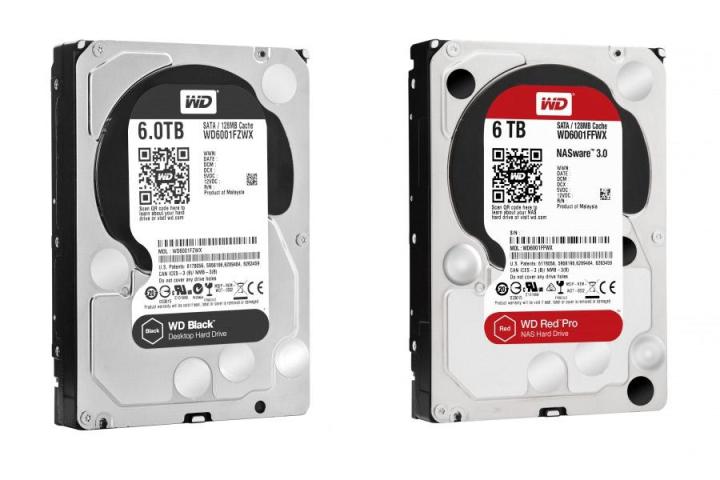
While there are certainly large SSDs available with multi-terabyte configurations, you aren’t going to find ones of this size at anywhere near the cost just yet, which is why hard drives are still a necessary evil for those requiring a massive amount of storage space. Western Digital knows this, but has made sure that these drives are far from slow, so there isn’t such a drop-off in performance from your boot to storage drive.
The Red Pro range of network attached storage (NAS) focused drives are said to operate as fast as 214Mbps thanks to a 128MB cache. While we’re not told how fast the Black drives operate, we are told that they perform as much as 29 percent faster than the 4TB predecessor in the same range.
The Black drives are able to make use of StableTrac Technology for increased reliability, while cutting back on potential damage to the disc from shock and vibration. They also come with a five-year limited warranty, making it a safe bet that those drives are constructed to last a while.
Comparably, the Red Pro series of new high-capacity hard drives supports NASware 3.0 for better data protection and enhanced performance when operating as part of a NAS device. These hard drives come with a three-year limited warranty as standard, though a longer five-year warranty can be purchased separately.
The WD Black drives cost $265 for the smaller 5TB model, while the larger 6TB will set you back $295. The Red Pro series is a little more expensive, with its models priced at $270 and $300, respectively.
Editors' Recommendations
- Western Digital comes clean about massive security breach
- Blistering-fast Western Digital SSDs hit up to 7,300MB/s
- New self-driving car algorithm keeps you safe by constantly predicting doom
- Built on a fast SSD, LaCie’s computer-free backup drive just got much better




